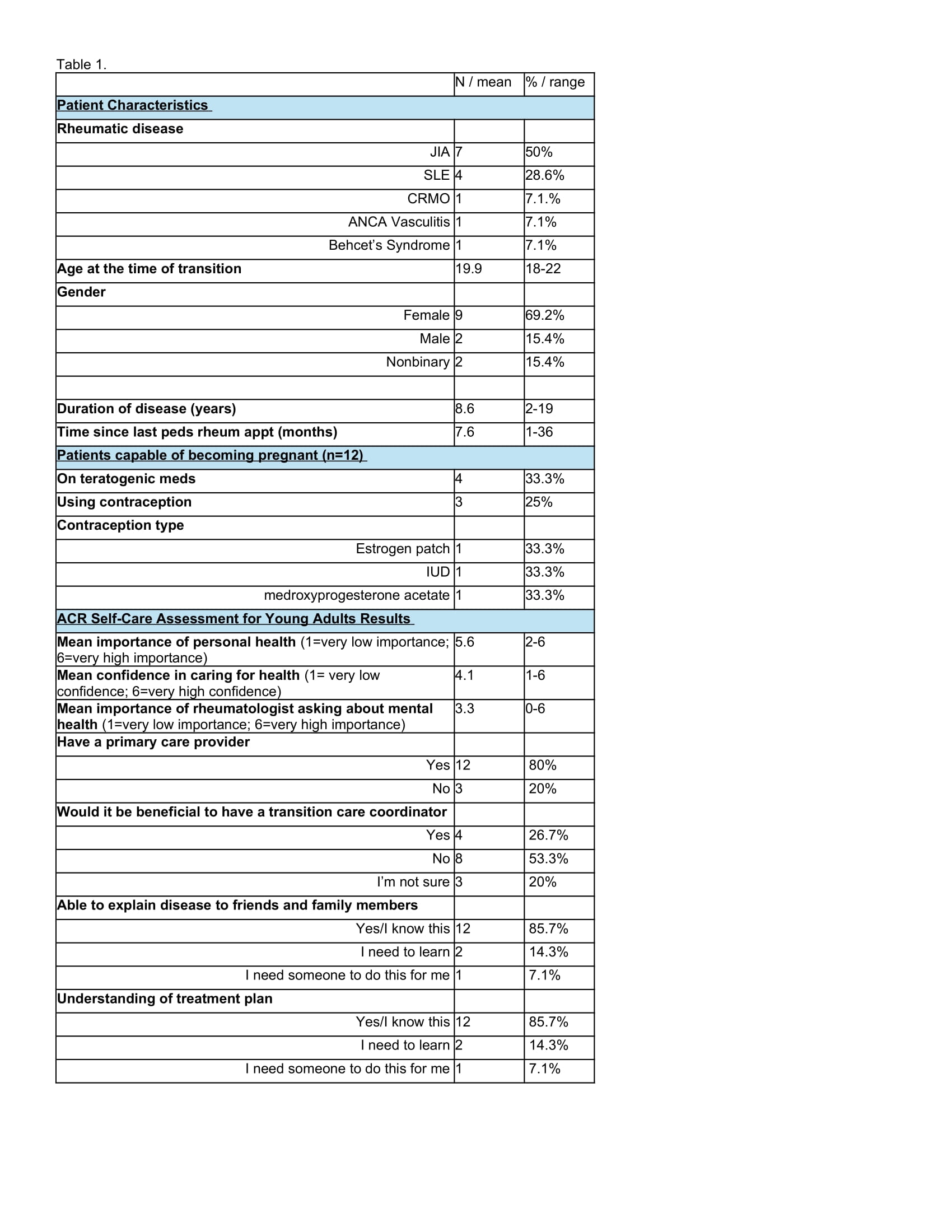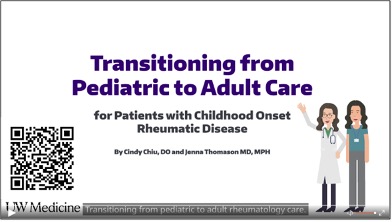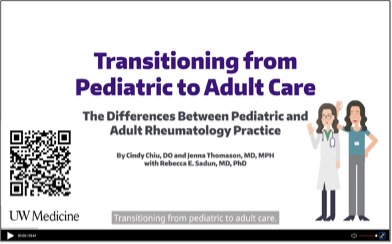Session Information
Session Type: Poster Session B
Session Time: 10:30AM-12:30PM
Background/Purpose: Transitional care for patients with childhood-onset rheumatic disease is essential, as this transition is known to be a high-risk time for medication nonadherence, lapses in care, worsening mental health, and increased disease activity. Almost all guidance on this topic comes from the pediatric perspective; little is known about how adult rheumatology clinics can support patients through this process.
Methods: All patients transitioning to adult care at one of three UW rheumatology sites were invited to complete a Transition Survey, which was comprised of the ACR Self-Care Assessment for Young Adults (assessing transition and self-care importance, confidence, health knowledge, and navigation of the healthcare system), plus additional questions regarding sexual/reproductive health and access to primary care and mental health services. Demographics, disease characteristics and time lapsed since last pediatric appointment were collected via chart review.
Results: From February 2023 – May 2024, 28 eligible patients were identified; 14 (50%) completed the survey. Of those surveyed, 7 (50%) had JIA, 4 (28.6%) had SLE, 1 had CRMO, 1 had Behcet’s Syndrome, and 1 had ANCA vasculitis [Table 1]. Mean disease duration was 8.6 years (range 2 – 19 years) and average time since last pediatric rheumatology appointment was 7.6 months (range 1 – 36 months). Of those capable of becoming pregnant, 4 (33.3%) were on teratogenic medications, and half of the patients on teratogenic medications reported being on contraception.
Half of those surveyed felt it was very important to take care of their health, but only 23.1% felt extremely confident in their ability. Most reported understanding how to schedule appointments, check in for appointments, and identify their type of health insurance. The majority (83.3%) were interested in educational resources explaining the differences between pediatric and adult rheumatology care. Respondents also noted interest in receiving information via social media. Only 21.4% felt they would benefit from a transition coordinator, whereas slightly more than half (57.1%) did not think they would benefit from this resource. Of those who felt they would benefit from a transition coordinator, the majority expressed low confidence in their ability to take care of their own health.
Conclusion: There remains much to learn about how we can support young adults transitioning from pediatric to adult rheumatology care. Per the suggestions from our respondents, we produced educational videos detailing the transition timeline [Figure 1] and highlighting major differences between pediatric and adult care [Figure 2]. While some patients, particularly those with low confidence in their ability to care for their own health, may benefit from a transition coordinator, this resource may not be necessary for all youth transitioning to adult care.
To cite this abstract in AMA style:
Chiu C, Van den Bogaerde S, Swaminathan M, Sadun R, Jenna T. Rheum to Grow: Supporting Young Adults with Childhood-Onset Rheumatic Disease in Their Transition to Adult Care [abstract]. Arthritis Rheumatol. 2024; 76 (suppl 9). https://acrabstracts.org/abstract/rheum-to-grow-supporting-young-adults-with-childhood-onset-rheumatic-disease-in-their-transition-to-adult-care/. Accessed .« Back to ACR Convergence 2024
ACR Meeting Abstracts - https://acrabstracts.org/abstract/rheum-to-grow-supporting-young-adults-with-childhood-onset-rheumatic-disease-in-their-transition-to-adult-care/



